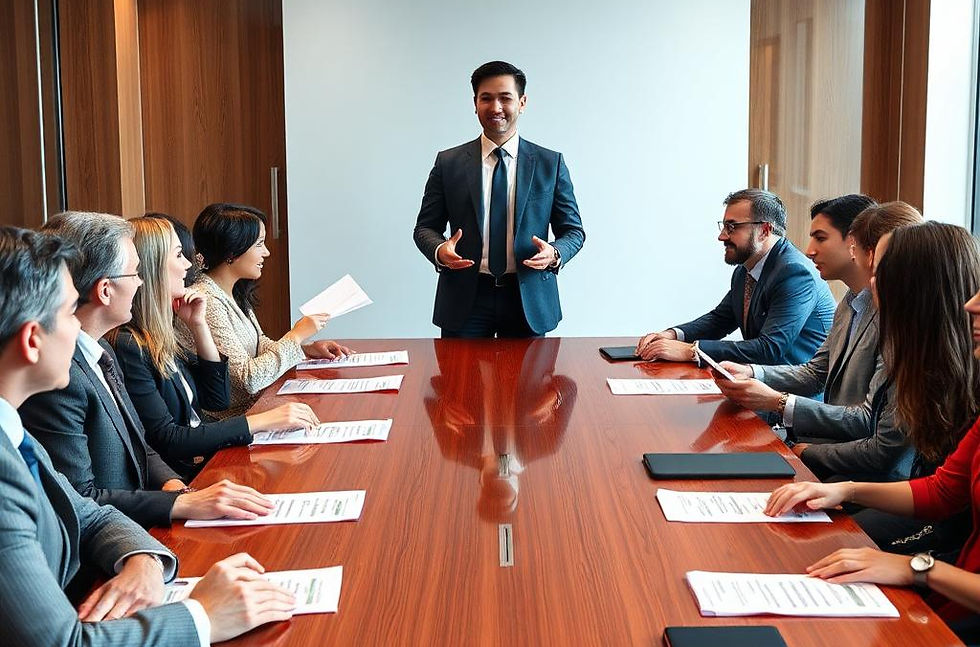Why Improv Trained Applicants Have a GROWING Advantage in the Job Market
- Bryan Bakker

- Sep 8, 2025
- 2 min read
In the modern economy, where knowledge is both abundant and easily copied, the corporate world is rediscovering a timeless truth: ideas matter less than the ability to defend them. A perfectly crafted memo can be plagiarized. A flawless essay can be ghostwritten by an algorithm. But when a young professional is asked to explain, live and unfiltered, why their solution works—suddenly the shortcuts vanish.

That’s why corporations are increasingly prizing oral defense over written submission. It’s not enough for an employee to hand in a “perfect report” that might have been stitched together by ChatGPT or quietly borrowed from a colleague. What matters is whether they can think on their feet, respond to pushback, and adapt their reasoning in real time.
Oral defense isn’t just a test of knowledge; it’s a test of character.
This is where comedy improvisation, an art form once dismissed as little more than Friday night entertainment, is finding its unexpected corporate application. In improv, performers are trained to listen deeply, to respond spontaneously, and to defend absurd ideas with complete conviction. The game “Yes, And” is essentially a crash course in collaborative innovation. Imagine transplanting that skillset into a boardroom where employees must not only propose an idea but also withstand skeptical questioning without retreating into canned phrases.
Comedy improv forces clarity. It demands presence. It trains people to turn mistakes into opportunities and to navigate uncertainty with confidence. And in a world where artificial intelligence can produce convincing text at scale, those who can speak convincingly in the moment will stand out.
The employees who shine won’t necessarily be the best writers; they’ll be the best explainers.
The future corporate hierarchy may look less like an essay competition and more like a live debate stage. Managers will ask, “Convince me now, in person, without notes.” The employees who shine won’t necessarily be the best writers; they’ll be the best explainers. Which is why the students practicing improv today—the ones laughing their way through exercises about penguins running corporations or pirates pitching ad campaigns—may turn out to be the most future-ready hires tomorrow.



Comments